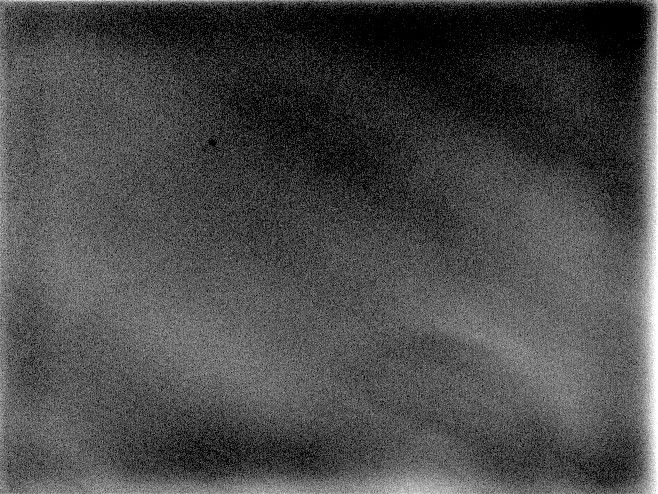
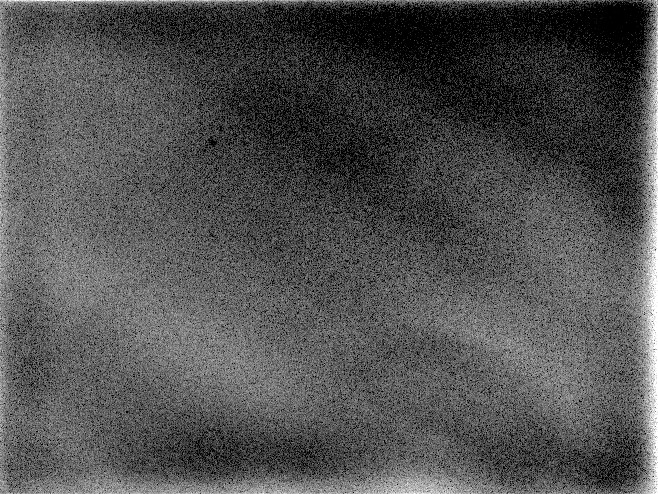
4 sec 8 sec
The following images were calibrated using a new flat field methodology.
A translucent piece of acrylic plastic was fixed to the front end of the
tube. At the opposing wall of the observatory (balcony) a light table was
attached. The light from the table is supposedly day light like. It shines
diffusely onto the disk at the scope aperture and then into the scope.
The flat fields now look more structured, which seem to be an indication that they get better. Here are flats of 4 sec and 8 sec exposure.


4 sec
8 sec
The 4 sec exposure seems less grainy than the 8 sec exposure, why? The short exposure was to about 20% saturation the 8 sec about 40%. Should the response of the camera become no linear after a certain saturation level? Did something change during the sequence of the 8 sec exposures? Perhaps temperature gradient?
Still the dark fields suffer from temperature dependence.
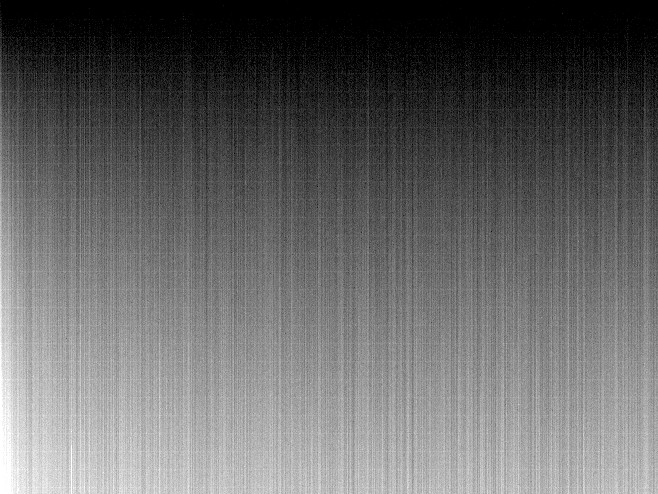
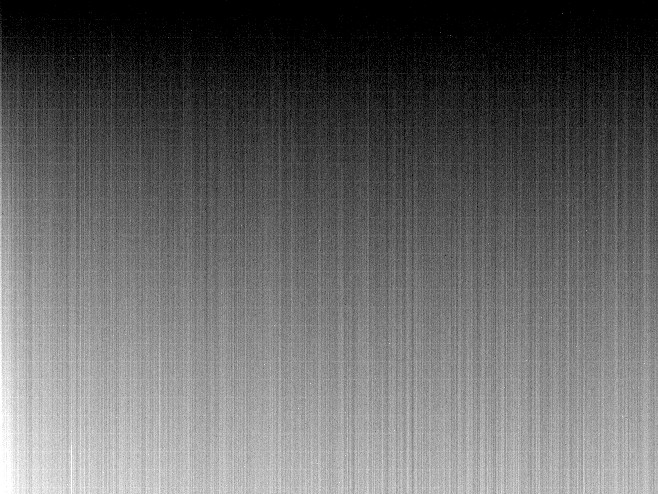
4 sec
8 sec
The interesting thing is that the average of the dark fields does not
change much. Compared with even the 240 sec exposure there is more dependence
with temperature than with exposure time.
| Exposure | Temperature | Average counts |
| 4s | 22C | 1077 |
| 8s | 19C | 1071 |
| 240s | 19C | 1060 |
The dark fields seem to be more a kind of bias fields than they have anything to do with dark current. Should they be responsible for remaining artifacts?
Using the 4 sec flat field the following images were calibrated.
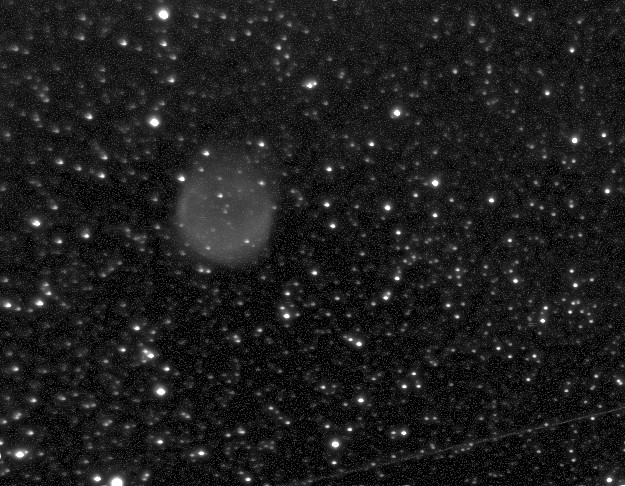
NGC 6781, 13" f4, 10x4min, no filter, dark filed and flat field calibrated histogram stretched and apply simple sharpen filter. Main mirror was out of alignment which explains the distorted stars. Cloudiness of the background is better than before, but still present. No more streaky artifacts.
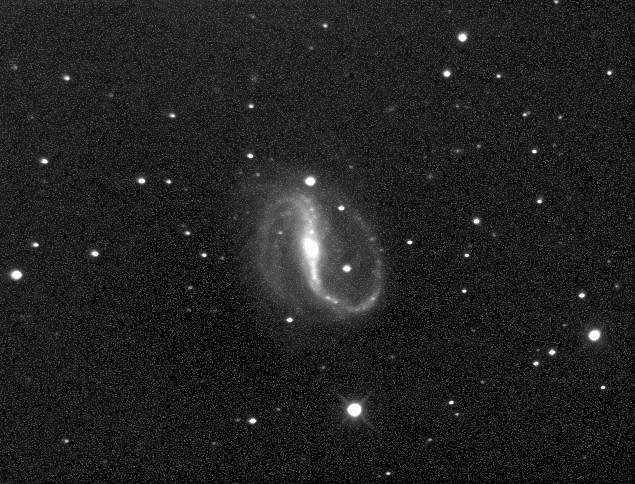
NGC 7479, 13" f4, 10x4min, no filter. Main mirror better aligned. Dark filed and flat field calibrated histogram stretched and apply simple sharpen filter.
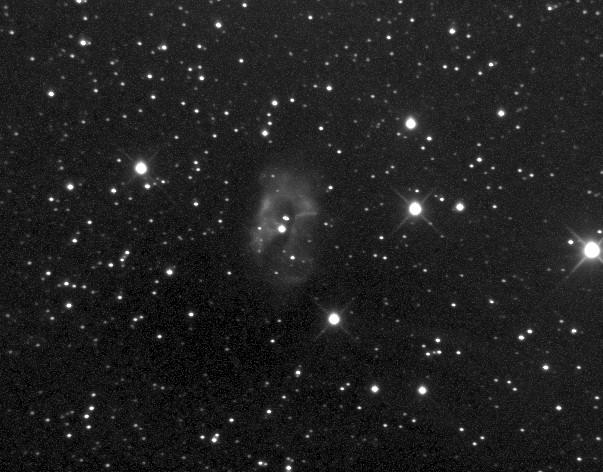
PK036-01.1, 13" f4, 20x4min, no filter. Dark field and flat field calibrated histogram stretched and apply simple sharpen filter.
Please email at : drgert1@yahoo.com